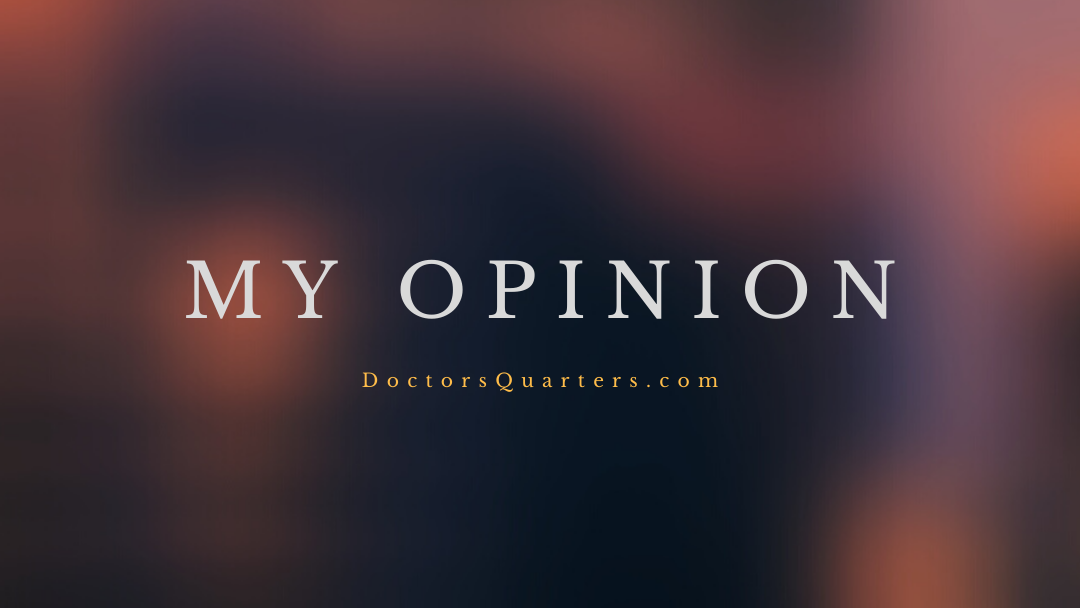AS MEDICAL AND DENTAL CONSULTANT ASSOCIATION OF NIGERIA, MDCAN, BEGINS ITS STRIKE.
For the very first time since I became affiliated to the medical profession, Medical and Dental Consultants are pushing to go on strike for reasons that are related to a recent directive by the Nigerian University Commission (NUC).
Ever since the discussion in the subject matter commenced, I have deliberately tried to stay away from arguing needlessly on matters that are not only shameful, it makes no point to comment on matters that need serious in-house cleansing.
My thoughts on this are as follows:
Point 1.
The debate started from a need to regulate medical advancement in the Universities. Hitherto, medical consultants with a Fellowship have been placed on the same level with their Ph.D. non-medical counterparts in terms of entry-level in the Universities and that’s why employments into the University in commenced at Lecturer 1 level while those without fellowship and just MBBS are placed on lecturer2. That has been the norm and no one contested it.
The implication is that Fellowship of the postgraduate medical colleges had always been placed at par with Ph.D. Till the recent directive by NUC which didn’t affect the entry-level but aimed at career progression in the Universities and appointment as principal officers, the debate would have been unnecessary.
It’s safe to say that a norm that had been accepted for years that professional fellowship is at par with the academic Ph.D. is now at threat simply because of academic appointments and career progression to Professor.
Point 2.
The medical fellowship in Nigeria with the exception of just a meager few (Paediatrics of WACP and Psychiatry) have zero international recognition and is not accepted beyond the shores of Nigeria.
From experience, many recruitment agencies, Universities, and international grading systems ask potential Nigeria medical fellows annoying questions that depict that they have simply wasted the 6+ years they spent acquiring the Fellowship.
For those who have gone through the fellowship, one would know that it is serious and tedious work that combines academic excellence with clinical skills. That is exactly what it is tailored to achieve. And if not being accepted in Africa, Europe and other parts of the world are not enough salt rubbed in injury, being decimated in Nigeria is complete decapitation.
Point 3.
I wasn’t surprised to see the fight championed surprisingly by MDCAN because they are mostly affected.
NMA which is a group that houses all doctors with an MBBS irrespective of career advancement under one roof, and are rightly positioned to champion the cause of relegation of one of the most prestigious degrees her members earn (at least in Nigeria) cannot act because membership is polarized across selfish interests and divided egos.
The Medical Consultants have for years seen themselves as far superior to any other colleague who doesn’t have the “local champion” certificate. They relegate them in terms of opinion, leadership, and others and no one is surprised that when this fight is gaining momentum, they will be standing alone.
NARD, an affiliate of NMA and a group who have members that will eventually become MDCAN members and medical consultants after acquiring fellowship saw part of the future, they went to court to seek certain interpretations to protect the medical fellowship in Nigeria (Yours truly was part of the excos then), however, hawks in the medical profession and egoistic medical senior colleagues sitting in position of power truncated the move and ensured the case was DOA (Dead on Arrival).
The medical profession in Nigeria is being assaulted by Nigerian citizens, the legal profession, the international community, the other health professionals and many others only simply because there is a serious level of insincerity and in-fighting among medical colleagues. And the distrust and put-down syndrome is egoistic and at best childish.
Point 4.
I have always opined that the medical curriculum in Nigeria and medical education deserves a review. Colleagues who have gone to the diaspora frequently cite how they feel out of place in terms of capacity (both infrastructure and knowledge) when they get there. Don’t get me wrong, Nigeria trained doctors are very smart and intelligent and not surprising that they ace the licensing exams of most countries (PLAB, USMLE, AMC, etc) at one sitting, but medical education globally has gone beyond theories and ability to master a few notes.
Medicine is more practical and is an art and is very dynamic. The Nigeria medical curriculum places a lot of emphasis on needless medical and scientific rubbish and ignores the medical necessities needed in the 21st century. The world keeps evolving but the medical curriculum in Nigeria remains stagnant.
The average Nigerian medical doctor has crammed dozens of pathways, drugs, processes, and procedures that are very unnecessary. The exams are modeled to reflect who is the best Cranmer and not who has the best understanding. The grey matter that is supposed to be reserved for making proper diagnosis and inferences are occupied with loads of useless biochemical pathways and procedures that are unnecessary.
Yes the country itself contributes to the problem in that diagnostic equipment and proper structures are absent or inefficient, so one relies on one’s intuitive capacity and experience to make a proper diagnosis.
The world has moved on from cramming. Drug names, doses, treatment protocols are not supposed to be crammed. They are available in every corner in the hospitals, the web and on pdf copies or ebooks on phones.
The medical education in the world has moved on to things like making proper diagnoses, offering life-saving medical interventions and patient empathy. These are critical aspects that constantly elude the Nigerian medical space.
Point 5.
In all this brouhaha, the MDCAN and others have refused to champion how medical education can be best improved. They do not get involved in matters of remuneration of their colleagues (excerpt it concerns them), they do not engage other colleagues who are non-fellows to help them become better in their practice. Their only concern is them and then alone.
So I wouldn’t be surprised to see that they will attract minimal sympathy from colleagues who are not in any way affiliated to the Universities in this or other colleagues who have been at the forefront of their intimidation, verbal assault and many other discriminatory roles in the past. The only exception may be NARD though who knows that it becomes a matter of time to be affected also and by extension, they will be affected as well.
Points me back to the very essence of this write up; the average Nigerian doctor is SELFISH.
Once you have moved up the ladder, little attention and care are paid to those coming behind. Some would deliberately remove the ladder to prevent others from climbing while some wittingly devise mechanisms to ensure their colleagues are never at par with each other.
Sharing information to assist colleagues or make them better is very elusive in the medical profession.
The quest for glory and self-recognized gratification makes many refuse to share knowledge with each other aiming to become invincible and the only source of particular information when needed. The need to self perpetuate themselves in certain positions has caused many to refuse to share what they have learned with others. This is not only rife in the academic or professional space, but it also happens in the medical associations.
Morbidity and mortality reviews and grand rounds that were designed to share knowledge and ensure the systems are better, have become a war zone, theatres of abuse and an ego refreshing event especially if you are senior.
Inter sub-specialty grandiose delusions abound; medicine vs surgery or internal medicine vs family medicine. Frequent rancor and ego-based decisions are counterproductive that’s why you see lack of trust and disharmony between the two main postgraduate medical colleges in Nigeria (NPMCN and WACP/WACS).
The degree of reciprocity is very low.
It is easier to attain an FRCP or MRCOG with a WACP/WACS than obtain one from NPMCN and Vice versa. The constant bragging posture of either colleges about who they are and their inability to resists others from joining them is known to many.
It’s also a very known fact that self-training has replaced institutional training in most parts of the country. Resident doctors are left helpless as their trainers are off in search of greener pastures and they are left to fend for themselves and drive their own training.
Some of us never saw many of our trainers for years but we still had to ensure we put double the work to not only pass exams but to be able to master the specialty as much as possible.
I sincerely wish MDCAN the best and hope that they remain successful in this quest.
However I’ll advise that they champion a long-overdue review of the medical curriculum and medical training, they seek international recognition of their fellowship and adopt newer and modern ways of ensuring that the tortuous years spent on medical fellowship training programs are not wasted due to lack of planning.
More importantly, serious house cleaning is needed because that’s the greatest hindrance to progress. Most of the losses have been from within and they need to look inwards to identify the weevils destroying their rice stocks.
Written By Adedayo Aderibigbe holds a Medical Fellowship degree and writes from Ilorin.
































